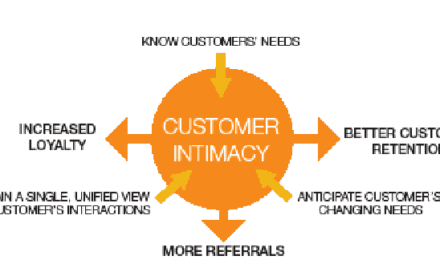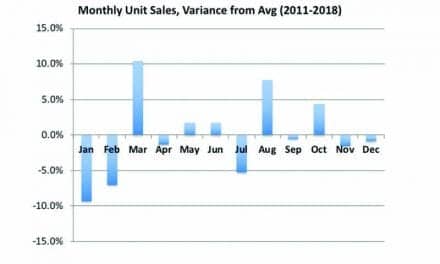iHear Medical Inc, San Leandro, Calif, has announced a partnership with the insurance and financial services company Ameritas. The partnership with Ameritas is said to offer next-generation invisible hearing solutions at a fraction of the cost, according to the company. iHear Medical, founded by Adnan Shennib who also founded InSound Medical which developed the original Lyric extended-wear hearing device, manufactures hearing aids designed to break through persisting barriers that prevent people from obtaining clinically effective hearing solutions through traditional channels—factors such as cost, stigma, and the inconvenience of multiple visits to the hearing care professional.
iHEAR products are available directly to Ameritas customers from the iHEAR online store at www.ihearmedical.com. These include the iHEARHD and iHEARMAX invisible hearing aids, as well as the iHEARTEST, the first and only FDA-cleared over-the-counter (OTC) home hearing screener. iHEAR’s hearing solutions are offered at $299 before reimbursement, compared with programmable hearing aids available at hearing centers costing $2400 on average for a single hearing aid, or about $5000-$6000 for a binaural fitting. According to the company, iHear products combine high quality sound and online self-programming, are backed by a 45-day satisfaction guarantee, and also offer remote programming and support by licensed hearing professionals.
Ameritas Life Insurance Corp provides a wide range of insurance and financial products and services to individuals, families, and businesses, insuring or administering benefits for more than 6.4 million people nationwide. The corporation offers dental, vision, and hearing care products and services, which includes one of the largest dental networks in the country with more than 413,500 access points.
“Millions of people suffer from hearing loss,” said Karen Gustin, Ameritas group division executive vice president in a press release.“ It can affect a person’s overall quality of life and relationships with others. We look forward to our partnership with iHear to make hearing aids more accessible and affordable for our customers and people nationwide.”
Shennib offers his perspectives. Since the company’s inception, the goal of iHear Founder Adnan Shennib has been to offer effective and affordable hearing solutions that are in line with prescription eyeglasses sold for under $300. Several years in the making, the supply agreement with Ameritas is in some ways similar to that of Intricon’s supply agreement with UnitedHealth Group’s hi HealthInnovations division. Importantly, however, the iHear hearing aid is supplied directly to the consumer.
“On the surface [this] looks similar to [the UnitedHealth-Intricon agreement], but we’re really the only manufacturer that supplies the consumer directly,” Shennib told The Hearing Review. “Other [insurance agreements] involve different players, which drive the costs higher, because you’re still going through a distribution channel that has a mark-up [of as much as 2 to 3 times]. So there are other systems [like UnitedHealth] that do offer a less expensive method than brick-and-mortar audiology practices, but are still more expensive than what we offer.”
Shennib is quick to add that the online support provided by iHear is a critical component. In November, iHear launched its EarPiNG™ customer support system, which connects consumers with licensed hearing care professionals for remote customization of their iHEAR devices. EarPiNG is the latest addition to iHEAR’s telehealth platform, which is said to offer consumers comprehensive online tools to manage their own hearing care from their homes—from hearing screening to self-programming of the hearing device. EarPiNG enables iHEAR’s hearing professionals to “ping” a hearing aid anywhere over the Internet to adjust its settings, and customers can “chat” online or by phone with a hearing professional to interactively optimize the web-enabled hearing aids.
“We’ve found that making very small changes to the hearing aid program can make all the difference in the world for a customer, moving him or her from an unhappy to very happy customer,” says Shennib. “So we do have professional staff onsite, and we have introduced the EarPiNG remote hearing aid programming system. We’re the only manufacturer in the world that can directly adjust the prescription and fitting parameters directly to the hearing aid through our iHear USB device—and that’s really a critical component of our system…Everything is web-centric including professional support.”
“There is a lot of pressure for low-cost solutions and all that is going on from a regulatory point of view,” added Shennib. “It’s all going toward more affordable hearing solutions, and there are different companies going about it in different ways…we’re trying to reach people who otherwise would wait another 10 years before they get a hearing solution.”








So much focus on cost, but value is completely overlooked. Shouldn’t we realize that hearing help is a product AND a professional service? Pew Research says nearly 2/3 Americans own a smartphone and pay on average $110/mo for the service. Over 5yrs that’s $6,600–not including the cost of the phones–for a non-medical service. How much is the gift of hearing worth compared to a cell phone?
I”m almost 90- years old with quite normal health apart of my hearing deterioration 4-5 years.
Have tried the Siemens Artis 2 life unsatisfied. Now i use the Oticon Danish last shout technology OPN1 argues to be the best existing, but unfortunately not yet satisfying. Hope you have a branch in Israel where i can approach and try your updated technology. yet ready to forward my recent Oudiogram test showing the down curve for your kind consideration.
In case you sincerely are confident in your superior technology. i may follow your guidance purposely to improve my poor standard of life
Please advice
Izhak Ran
93 Hayin Levanon St Tel Aviv ISRAEL
Or would you dispense eye glasses, not the readers, via a self administered screening tool directly to the consumer?
You mention dental care. Would you provide dentures online, directly to the consumer without face to face care from a service provider?